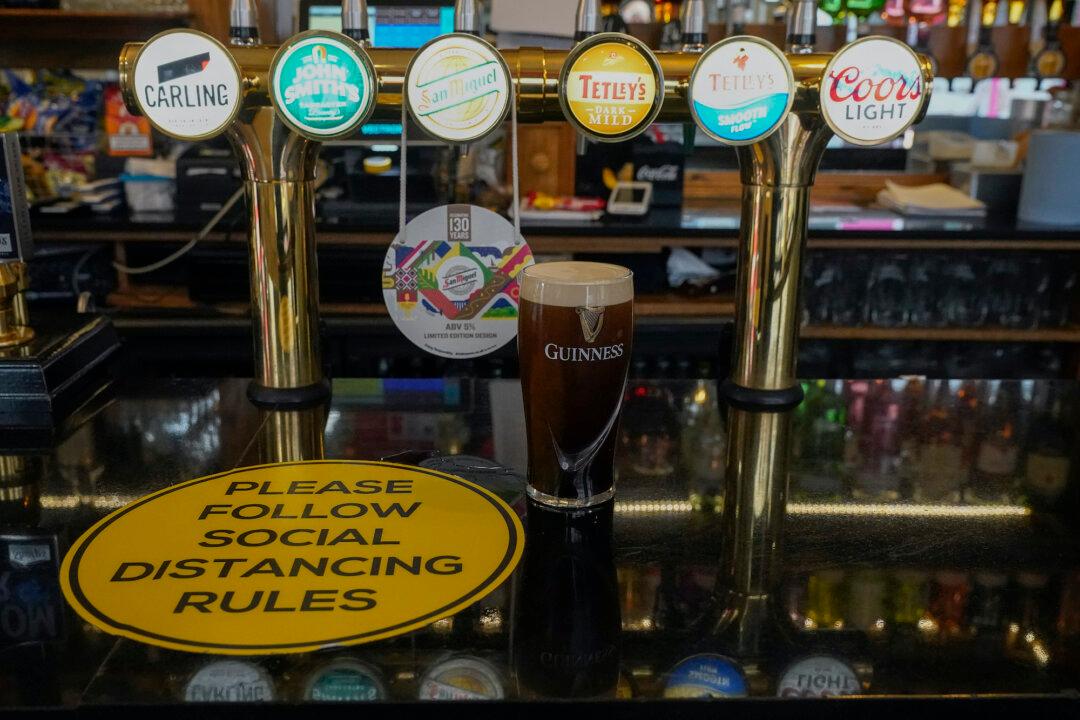Around 30,000 pubs in England will stay closed or be made non-viable under new toughened tiering restrictions to be enacted when the current national lockdown to slow the spread of the CCP virus ends on Dec. 2.
Trade association the British Beer and Pub Association (BBPA) raised concerns in a statement on Thursday that unless the government steps in to support the sector, new Tier 2 and 3 restrictions coming in will have a “devastating impact on over 30,000 pubs—four in five pubs in England.”





